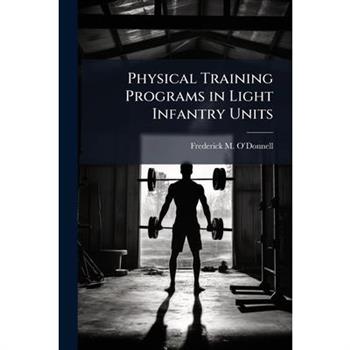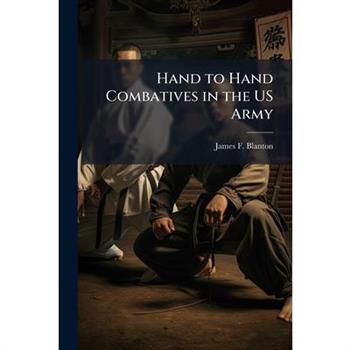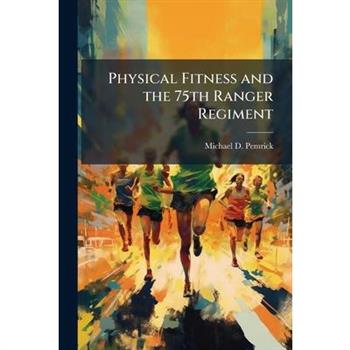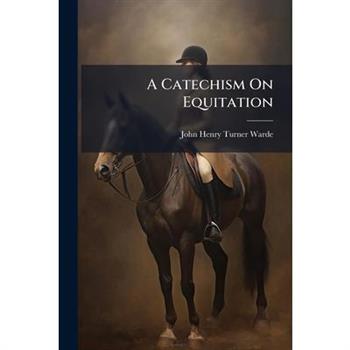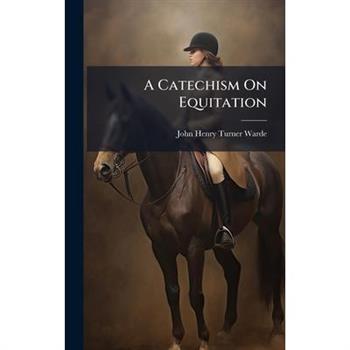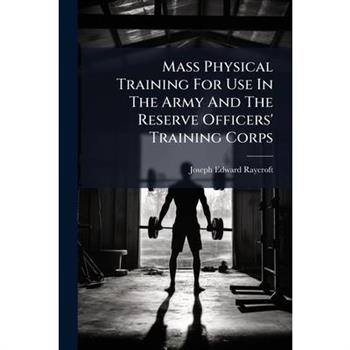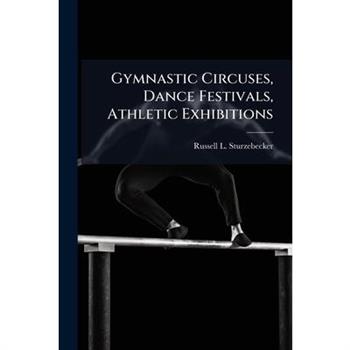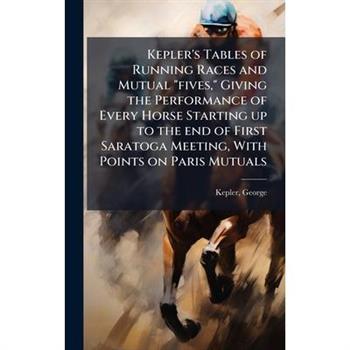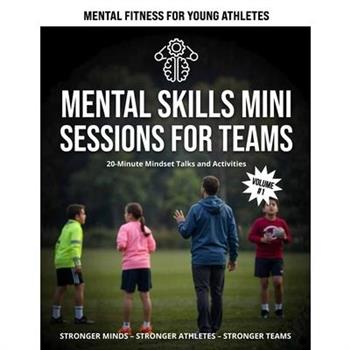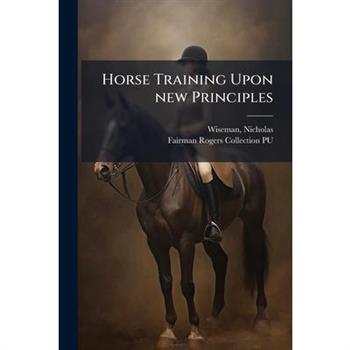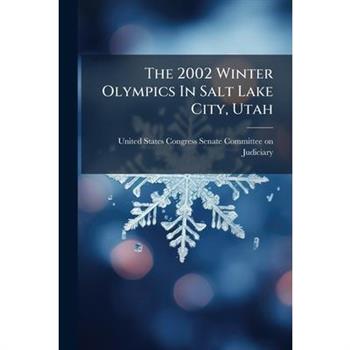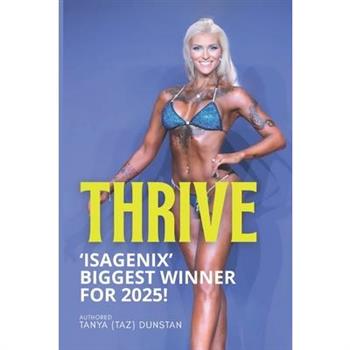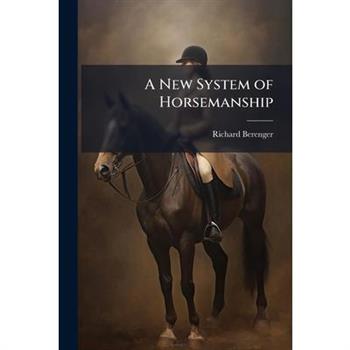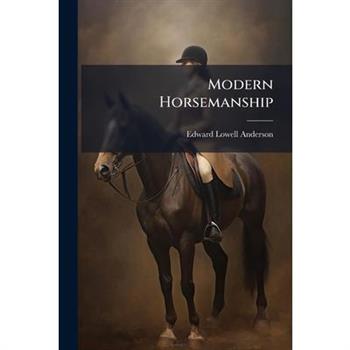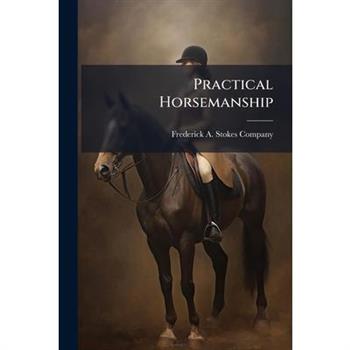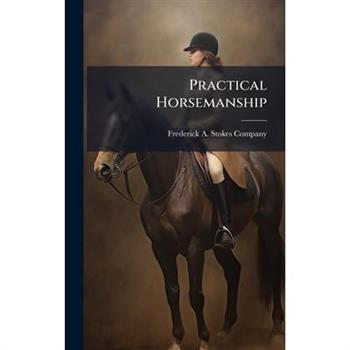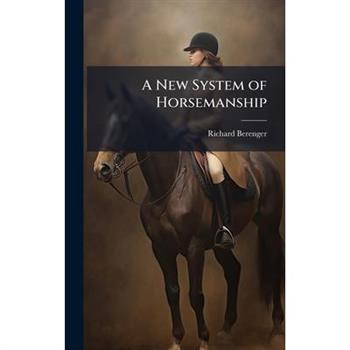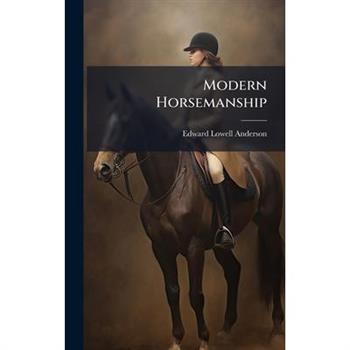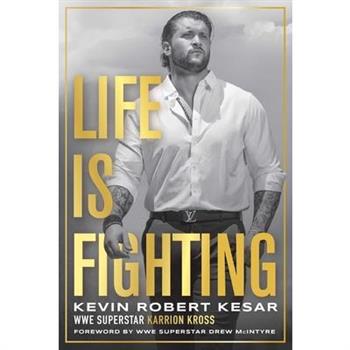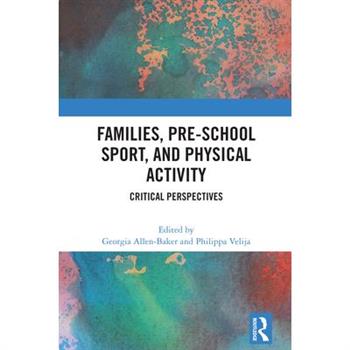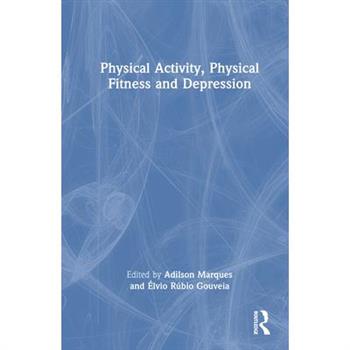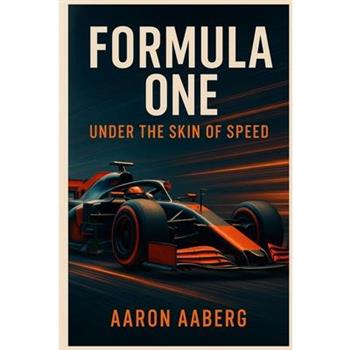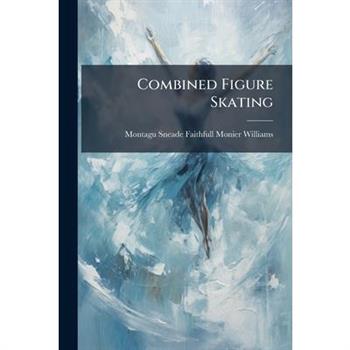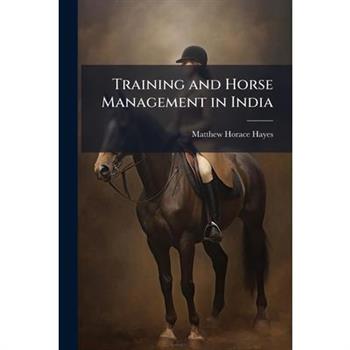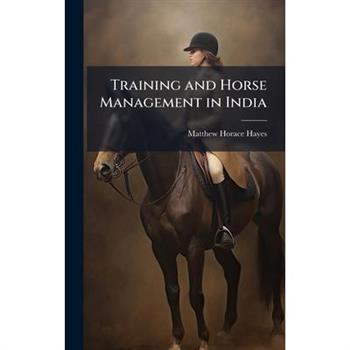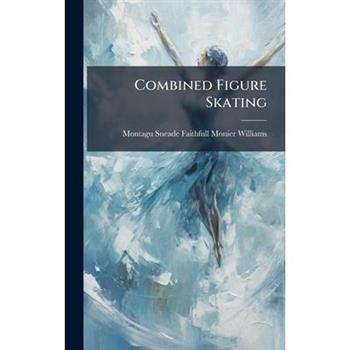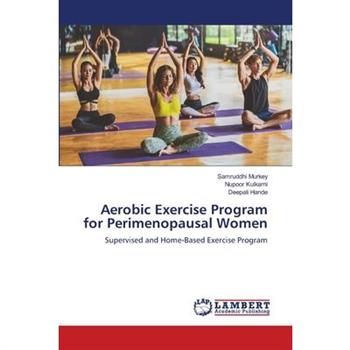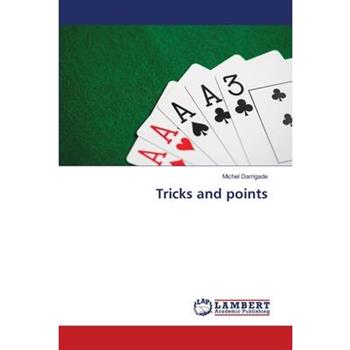Benefits of Bicycling and Walking to Health
The Department of Transportation (USDOT or DOT) is a federal cabinet department of the United States government. The office's main concerns are those associated with transportation and transportation needs across the country. Established in 1967, the DOT is administered by the United States Secretary of Transportation. Some of the DOT's larger agencies include the Federal Aviation Administration (FAA), the Federal Transit Administration (FTA), the Maritime Administration (MARAD), and the Federal Highway Administration (FHWA). The Department of Transportation and its agencies create numerous publications each year to educate the public about certain areas of transportation, new technology in the field, and the histories of the agencies and the department.This work has been selected by scholars as being culturally important, and is part of the knowledge base of civilization as we know it. This work was reproduced from the original artifact, and remains as true to the original work as possible. Therefore, you will see the original copyright references, library stamps (as most of these works have been housed in our most important libraries around the world), and other notations in the work.This work is in the public domain in the United States of America, and possibly other nations. Within the United States, you may freely copy and distribute this work, as no entity (individual or corporate) has a copyright on the body of the work.As a reproduction of a historical artifact, this work may contain missing or blurred pages, poor pictures, errant marks, etc. Scholars believe, and we concur, that this work is important enough to be preserved, reproduced, and made generally available to the public. We appreciate your support of the preservation process, and thank you for being an important part of keeping this knowledge alive and relevant.
Physical Training Programs in Light Infantry Units
This thesis studies whether light infantry physical training (PT) programs include the combat focus necessary to prepare soldiers for the rigors of combat. United States Army physical training doctrine stresses the development of PT programs that enhance military skills essential to effective combat and duty performance. Programs must integrate the interactive components of strength, mobility, and endurance. Unit mission essential task lists (METLs) provide a finite number of wartime tasks. Examination of light infantry METLs, plus identification of supporting platoon and individual tasks, revealed the physically demanding tasks an infantryman performs on the battlefield. These were then analyzed to determine the demand required regarding the physical readiness components. Surveys determined the frequency and types of tasks executed during unit physical training PT. Those tasks executed most routinely in units were analyzed to determine their physical readiness component demands. This facilitated comparison between light infantry combat tasks and tasks present in unit PT programs. Results indicate that although strength and endurance are integral parts of light infantry PT programs, mobility is almost nonexistent. This critical component is the functional application of strength and endurance. Its omission from unit programs is a glaring weakness in preparing soldiers for the fluid and complex combat environment.This work has been selected by scholars as being culturally important, and is part of the knowledge base of civilization as we know it. This work was reproduced from the original artifact, and remains as true to the original work as possible. Therefore, you will see the original copyright references, library stamps (as most of these works have been housed in our most important libraries around the world), and other notations in the work.This work is in the public domain in the United States of America, and possibly other nations. Within the United States, you may freely copy and distribute this work, as no entity (individual or corporate) has a copyright on the body of the work.As a reproduction of a historical artifact, this work may contain missing or blurred pages, poor pictures, errant marks, etc. Scholars believe, and we concur, that this work is important enough to be preserved, reproduced, and made generally available to the public. We appreciate your support of the preservation process, and thank you for being an important part of keeping this knowledge alive and relevant.
Hand to Hand Combatives in the US Army
The Modern Army Combatives Program was adopted by the U.S. Army in 2000. The program is the culmination of a directive by the Commander of 2nd Battalion, 75th Ranger Regiment in 1995 to improve the Army's older and unused combatives program. Modern Army Combatives is a ground based fighting system that teaches soldiers to close the gap between him or herself, gain dominance and finishes the fight. The program's roots are in Brazilian Jujitsu, but is this the right program for the average soldier on today's battlefield? The attempt to answer this question was conducted by first analyzing the Army's program, then examining the Marine Corps, the Air Forces, the Russian military, the Israeli military, and the Korean military programs. Each forces program was then compared to Modern Army Combatives. In order to support the thesis of this paper, surveys and interviews from various organizations within the Army were conducted and in-depth interviews with martial arts experts from outside the military were used to provide a greater depth to the research. The current program has set the stage very well for the Army's hand-to-hand training, but through the half a dozen changes recommend in the thesis it can only get better.This work has been selected by scholars as being culturally important, and is part of the knowledge base of civilization as we know it. This work was reproduced from the original artifact, and remains as true to the original work as possible. Therefore, you will see the original copyright references, library stamps (as most of these works have been housed in our most important libraries around the world), and other notations in the work.This work is in the public domain in the United States of America, and possibly other nations. Within the United States, you may freely copy and distribute this work, as no entity (individual or corporate) has a copyright on the body of the work.As a reproduction of a historical artifact, this work may contain missing or blurred pages, poor pictures, errant marks, etc. Scholars believe, and we concur, that this work is important enough to be preserved, reproduced, and made generally available to the public. We appreciate your support of the preservation process, and thank you for being an important part of keeping this knowledge alive and relevant.
Benefits of Bicycling and Walking to Health
The Department of Transportation (USDOT or DOT) is a federal cabinet department of the United States government. The office's main concerns are those associated with transportation and transportation needs across the country. Established in 1967, the DOT is administered by the United States Secretary of Transportation. Some of the DOT's larger agencies include the Federal Aviation Administration (FAA), the Federal Transit Administration (FTA), the Maritime Administration (MARAD), and the Federal Highway Administration (FHWA). The Department of Transportation and its agencies create numerous publications each year to educate the public about certain areas of transportation, new technology in the field, and the histories of the agencies and the department.This work has been selected by scholars as being culturally important, and is part of the knowledge base of civilization as we know it. This work was reproduced from the original artifact, and remains as true to the original work as possible. Therefore, you will see the original copyright references, library stamps (as most of these works have been housed in our most important libraries around the world), and other notations in the work.This work is in the public domain in the United States of America, and possibly other nations. Within the United States, you may freely copy and distribute this work, as no entity (individual or corporate) has a copyright on the body of the work.As a reproduction of a historical artifact, this work may contain missing or blurred pages, poor pictures, errant marks, etc. Scholars believe, and we concur, that this work is important enough to be preserved, reproduced, and made generally available to the public. We appreciate your support of the preservation process, and thank you for being an important part of keeping this knowledge alive and relevant.
Physical Fitness and the 75th Ranger Regiment
This study attempts to determine how much each of the components of fitness; aerobic endurance, anaerobic and muscular endurance, strength, speed, coordination and flexibility are involved in the physically demanding tasks that a Ranger will most likely perform in combat. The extent to which each of the components of physical fitness are involved overall in the Ranger mission should be reflected in the type of physical training that the 75th Ranger Regiment conducts. The U. S. Army and its physical training manual, FM 21-20 and the 75th Ranger Regiment stress that the purpose of physical training is to help prepare soldiers for the rigor of combat. To ensure that this intent is met leaders must first understand the extent to which each of the components of physical fitness are involved in the mission before they can design a physical training program that helps meet the demands of combat. The results of this study indicate though the 75th Ranger Regiment maintains a high standard of physical fitness the physical training program, with its heavy emphasis on aerobic endurance, does not reflect the strength, flexibility, coordination and speed demands of combat.This work has been selected by scholars as being culturally important, and is part of the knowledge base of civilization as we know it. This work was reproduced from the original artifact, and remains as true to the original work as possible. Therefore, you will see the original copyright references, library stamps (as most of these works have been housed in our most important libraries around the world), and other notations in the work.This work is in the public domain in the United States of America, and possibly other nations. Within the United States, you may freely copy and distribute this work, as no entity (individual or corporate) has a copyright on the body of the work.As a reproduction of a historical artifact, this work may contain missing or blurred pages, poor pictures, errant marks, etc. Scholars believe, and we concur, that this work is important enough to be preserved, reproduced, and made generally available to the public. We appreciate your support of the preservation process, and thank you for being an important part of keeping this knowledge alive and relevant.
On The Law Of Error In Target-shooting
Dive into the mathematical intricacies of target shooting with "On The Law Of Error In Target-shooting, Volume 7" by Erastus Lyman DeForest. This volume explores the statistical principles underlying accuracy in shooting, offering a detailed analysis of the 'law of error' and its practical applications. DeForest's work combines theoretical mathematics with real-world scenarios, making it an invaluable resource for both statisticians and shooting enthusiasts. Examine how probability and mathematical analysis can enhance precision and understanding in target sports. This book is perfect for those seeking a deeper, quantitative approach to improving their shooting skills or for anyone interested in the application of statistical models to physical activities. Discover the enduring relevance of DeForest's insights into the science of shooting.This work has been selected by scholars as being culturally important, and is part of the knowledge base of civilization as we know it. This work was reproduced from the original artifact, and remains as true to the original work as possible. Therefore, you will see the original copyright references, library stamps (as most of these works have been housed in our most important libraries around the world), and other notations in the work.This work is in the public domain in the United States of America, and possibly other nations. Within the United States, you may freely copy and distribute this work, as no entity (individual or corporate) has a copyright on the body of the work.As a reproduction of a historical artifact, this work may contain missing or blurred pages, poor pictures, errant marks, etc. Scholars believe, and we concur, that this work is important enough to be preserved, reproduced, and made generally available to the public. We appreciate your support of the preservation process, and thank you for being an important part of keeping this knowledge alive and relevant.
A Catechism On Equitation
"A Catechism On Equitation" by John Henry Turner Warde offers a comprehensive guide to the principles and practices of horsemanship. Originally intended for military use, this classic text delves into the art of riding, training, and managing horses with precision and care. Warde's systematic approach, presented in a question-and-answer format, covers everything from basic horsemanship to advanced military maneuvers, providing riders with a solid foundation in equestrian skills. This edition preserves the original text, ensuring that Warde's insights remain accessible to modern readers. Whether you are a seasoned equestrian or a novice rider, "A Catechism On Equitation" provides invaluable knowledge and timeless wisdom on the art of horsemanship.This work has been selected by scholars as being culturally important, and is part of the knowledge base of civilization as we know it. This work was reproduced from the original artifact, and remains as true to the original work as possible. Therefore, you will see the original copyright references, library stamps (as most of these works have been housed in our most important libraries around the world), and other notations in the work.This work is in the public domain in the United States of America, and possibly other nations. Within the United States, you may freely copy and distribute this work, as no entity (individual or corporate) has a copyright on the body of the work.As a reproduction of a historical artifact, this work may contain missing or blurred pages, poor pictures, errant marks, etc. Scholars believe, and we concur, that this work is important enough to be preserved, reproduced, and made generally available to the public. We appreciate your support of the preservation process, and thank you for being an important part of keeping this knowledge alive and relevant.
A Catechism On Equitation
"A Catechism On Equitation" by John Henry Turner Warde offers a comprehensive guide to the principles and practices of horsemanship. Originally intended for military use, this classic text delves into the art of riding, training, and managing horses with precision and care. Warde's systematic approach, presented in a question-and-answer format, covers everything from basic horsemanship to advanced military maneuvers, providing riders with a solid foundation in equestrian skills. This edition preserves the original text, ensuring that Warde's insights remain accessible to modern readers. Whether you are a seasoned equestrian or a novice rider, "A Catechism On Equitation" provides invaluable knowledge and timeless wisdom on the art of horsemanship.This work has been selected by scholars as being culturally important, and is part of the knowledge base of civilization as we know it. This work was reproduced from the original artifact, and remains as true to the original work as possible. Therefore, you will see the original copyright references, library stamps (as most of these works have been housed in our most important libraries around the world), and other notations in the work.This work is in the public domain in the United States of America, and possibly other nations. Within the United States, you may freely copy and distribute this work, as no entity (individual or corporate) has a copyright on the body of the work.As a reproduction of a historical artifact, this work may contain missing or blurred pages, poor pictures, errant marks, etc. Scholars believe, and we concur, that this work is important enough to be preserved, reproduced, and made generally available to the public. We appreciate your support of the preservation process, and thank you for being an important part of keeping this knowledge alive and relevant.
Mass Physical Training For Use In The Army And The Reserve Officers' Training Corps
"Mass Physical Training For Use In The Army And The Reserve Officers' Training Corps" offers a comprehensive guide to physical conditioning and training methodologies tailored for military personnel. Authored by Joseph Edward Raycroft, this book details structured exercise programs designed to enhance the physical fitness and readiness of soldiers and officers in training. The book provides detailed instructions, routines, and guidelines suitable for implementation in army training environments and ROTC programs. It emphasizes the importance of physical preparedness in military service, outlining methods to improve strength, endurance, and overall physical well-being. This historical manual serves as a valuable resource for understanding the evolution of physical training in the military and offers insights into the methodologies used to prepare soldiers for the demands of service.This work has been selected by scholars as being culturally important, and is part of the knowledge base of civilization as we know it. This work was reproduced from the original artifact, and remains as true to the original work as possible. Therefore, you will see the original copyright references, library stamps (as most of these works have been housed in our most important libraries around the world), and other notations in the work.This work is in the public domain in the United States of America, and possibly other nations. Within the United States, you may freely copy and distribute this work, as no entity (individual or corporate) has a copyright on the body of the work.As a reproduction of a historical artifact, this work may contain missing or blurred pages, poor pictures, errant marks, etc. Scholars believe, and we concur, that this work is important enough to be preserved, reproduced, and made generally available to the public. We appreciate your support of the preservation process, and thank you for being an important part of keeping this knowledge alive and relevant.
Jahrb?1/4cher Der Deutsch-amerik. Turnerei
Jahrb?1/4cher Der Deutsch-amerik. Turnerei, Volume 3, by Heinrich Metzner, delves into the rich history of German-American gymnastics, particularly focusing on the North American Turnerbund. This volume offers an in-depth look at the Turner movement, its development, and its significance within the broader context of German immigrant culture in the United States. Metzner's work provides valuable insights into the physical, social, and cultural aspects of this unique athletic and social phenomenon. Dedicated to the entire field of gymnastics, with special consideration for the history of the North American Turnerbund, this book illuminates the role of German-American gymnastic societies in promoting physical fitness, community, and cultural identity. It is an essential resource for historians, sports enthusiasts, and anyone interested in the German-American experience.This work has been selected by scholars as being culturally important, and is part of the knowledge base of civilization as we know it. This work was reproduced from the original artifact, and remains as true to the original work as possible. Therefore, you will see the original copyright references, library stamps (as most of these works have been housed in our most important libraries around the world), and other notations in the work.This work is in the public domain in the United States of America, and possibly other nations. Within the United States, you may freely copy and distribute this work, as no entity (individual or corporate) has a copyright on the body of the work.As a reproduction of a historical artifact, this work may contain missing or blurred pages, poor pictures, errant marks, etc. Scholars believe, and we concur, that this work is important enough to be preserved, reproduced, and made generally available to the public. We appreciate your support of the preservation process, and thank you for being an important part of keeping this knowledge alive and relevant.
Farriery
This book is essential reading for those who are looking to expand their knowledge and for those who seek a more philosophical approach to this ancient craft. It starts as a journey of inquiry, reviewing the past and examining the present, objectively introducing to the reader the wider perspective of farriery; not just about 'shoes on horses' but as a benign manipulative therapy, which forms an integral part of the whole horse concept.
Advanced Sports Nutrition
This book offers a comprehensive look into the relationship between nutrition and athletic performance. The book bridges the gap between cutting-edge scientific research and real-world application, covering essential topics such as macronutrient timing, hydration strategies, energy systems, recovery nutrition, and the safe use of supplements. Designed for athletes, coaches, and sports professionals, it provides evidence-based guidelines to enhance strength, endurance, and overall performance. Each chapter integrates theory with practical recommendations tailored to different types of training and sports disciplines. The book also explores the role of micronutrients, ergogenic aids, and the impact of diet on long-term athlete health. Whether optimizing performance or improving recovery, this guide equips readers with the tools to make informed, strategic nutritional decisions.
Gymnastic Circuses, Dance Festivals, Athletic Exhibitions
Gymnastic Circuses, Dance Festivals, Athletic Exhibitions: West Chester University, 1871-1991 chronicles the rich history of physical education and performance at West Chester University. From its early days, the university fostered a vibrant culture of gymnastics, circus arts, and athletic displays. This book explores the evolution of these activities, highlighting key figures and events that shaped the university's unique identity. Russell L. Sturzebecker delves into the archives to uncover fascinating details about the gymnastic circuses, showcasing the creativity and athleticism of the students. The book also examines the dance festivals and athletic exhibitions that brought the university community together. This is a valuable resource for anyone interested in the history of sports, performance, and education at West Chester University and beyond.This work has been selected by scholars as being culturally important, and is part of the knowledge base of civilization as we know it. This work was reproduced from the original artifact, and remains as true to the original work as possible. Therefore, you will see the original copyright references, library stamps (as most of these works have been housed in our most important libraries around the world), and other notations in the work.This work is in the public domain in the United States of America, and possibly other nations. Within the United States, you may freely copy and distribute this work, as no entity (individual or corporate) has a copyright on the body of the work.As a reproduction of a historical artifact, this work may contain missing or blurred pages, poor pictures, errant marks, etc. Scholars believe, and we concur, that this work is important enough to be preserved, reproduced, and made generally available to the public. We appreciate your support of the preservation process, and thank you for being an important part of keeping this knowledge alive and relevant.
Abuse Of Anabolic Steroids And Their Precursors By Adolescent Amateur Athletes
The BiblioGov Project is an effort to expand awareness of the public documents and records of the U.S. Government via print publications. In broadening the public understanding of government and its work, an enlightened democracy can grow and prosper. Ranging from historic Congressional Bills to the most recent Budget of the United States Government, the BiblioGov Project spans a wealth of government information. These works are now made available through an environmentally friendly, print-on-demand basis, using only what is necessary to meet the required demands of an interested public. We invite you to learn of the records of the U.S. Government, heightening the knowledge and debate that can lead from such publications.This work has been selected by scholars as being culturally important, and is part of the knowledge base of civilization as we know it. This work was reproduced from the original artifact, and remains as true to the original work as possible. Therefore, you will see the original copyright references, library stamps (as most of these works have been housed in our most important libraries around the world), and other notations in the work.This work is in the public domain in the United States of America, and possibly other nations. Within the United States, you may freely copy and distribute this work, as no entity (individual or corporate) has a copyright on the body of the work.As a reproduction of a historical artifact, this work may contain missing or blurred pages, poor pictures, errant marks, etc. Scholars believe, and we concur, that this work is important enough to be preserved, reproduced, and made generally available to the public. We appreciate your support of the preservation process, and thank you for being an important part of keeping this knowledge alive and relevant.
The 2002 Winter Olympics In Salt Lake City, Utah
The BiblioGov Project is an effort to expand awareness of the public documents and records of the U.S. Government via print publications. In broadening the public understanding of government and its work, an enlightened democracy can grow and prosper. Ranging from historic Congressional Bills to the most recent Budget of the United States Government, the BiblioGov Project spans a wealth of government information. These works are now made available through an environmentally friendly, print-on-demand basis, using only what is necessary to meet the required demands of an interested public. We invite you to learn of the records of the U.S. Government, heightening the knowledge and debate that can lead from such publications.This work has been selected by scholars as being culturally important, and is part of the knowledge base of civilization as we know it. This work was reproduced from the original artifact, and remains as true to the original work as possible. Therefore, you will see the original copyright references, library stamps (as most of these works have been housed in our most important libraries around the world), and other notations in the work.This work is in the public domain in the United States of America, and possibly other nations. Within the United States, you may freely copy and distribute this work, as no entity (individual or corporate) has a copyright on the body of the work.As a reproduction of a historical artifact, this work may contain missing or blurred pages, poor pictures, errant marks, etc. Scholars believe, and we concur, that this work is important enough to be preserved, reproduced, and made generally available to the public. We appreciate your support of the preservation process, and thank you for being an important part of keeping this knowledge alive and relevant.
Kepler's Tables of Running Races and Mutual "fives," Giving the Performance of Every Horse Starting up to the end of First Saratoga Meeting, With Points on Paris Mutuals
"Kepler's Tables of Running Races and Mutual 'fives, '" originally published in 1881, offers a fascinating glimpse into the world of 19th-century horse racing and gambling. This meticulously compiled record provides the performance of every horse starting up to the end of the First Saratoga Meeting. Beyond a mere record of races, this book includes "Points on Paris Mutuals," indicating its relevance to contemporary gambling practices. A valuable resource for historians, sports enthusiasts, and those interested in the evolution of statistical record-keeping in sports, this historical document captures a specific moment in the history of American horse racing.This work has been selected by scholars as being culturally important, and is part of the knowledge base of civilization as we know it. This work was reproduced from the original artifact, and remains as true to the original work as possible. Therefore, you will see the original copyright references, library stamps (as most of these works have been housed in our most important libraries around the world), and other notations in the work.This work is in the public domain in the United States of America, and possibly other nations. Within the United States, you may freely copy and distribute this work, as no entity (individual or corporate) has a copyright on the body of the work.As a reproduction of a historical artifact, this work may contain missing or blurred pages, poor pictures, errant marks, etc. Scholars believe, and we concur, that this work is important enough to be preserved, reproduced, and made generally available to the public. We appreciate your support of the preservation process, and thank you for being an important part of keeping this knowledge alive and relevant.
Mental Skills Mini Sessions for Teams
Mental Skills Mini-Sessions for Teams Part of the 'Mental Fitness for Teams Toolkit' 12 powerful mindset lessons. Ready for any practice or game day. This coach-friendly workbook is your quick-start tool for building mental toughness across your team. As part of the Mental Fitness for Teams Toolkit, it can be purchased individually or alongside athlete, coach, and parent books for a fully customized team set. With 12 plug-and-play mindset lessons (10 to 20 minutes each), you'll teach essential skills like mistake recovery, positive self-talk, focus, and resilience. No sport psych degree needed. Perfect for huddles, travel days, or pre-game moments, each session includes coaching tips, team questions, and practical takeaways. When used with the full Toolkit, these mini-sessions help everyone: players, coaches, and parents speak the same language and reinforce the same habits. Mental Skills Mini-Sessions make it easy to bring mindset training into your culture. This isn't extra. It's the missing piece. Visit us at mentalfitnessforyoungathletes.com
The House of the Prancing Horse
From its modest origins in Modena to the global stage of Formula One and the luxury streets of Monte Carlo, Ferrari has become more than just a car company-it is the ultimate symbol of passion, performance, and Italian artistry. In The House of the Prancing Horse: Ferrari Unleashed, the complete and uncompromising story of Maranello's legendary marque comes to life. Explore Enzo Ferrari's singular vision, the triumphs and tragedies on track, the stunning evolution of road and race cars, and the mystique that has made Ferrari an icon for generations.This definitive history captures every era, from the legendary 250 GTO and Lauda's comebacks to the hybrid hypercar revolution and the team's modern battles for F1 supremacy. With a focus on innovation, culture, design, and the extraordinary personalities who shaped the legend, this book is both a celebration of speed and a compelling journey through one of the world's most enduring brands. For collectors, tifosi, and anyone fascinated by the magic of the Prancing Horse, this is Ferrari as it has never been told before.
Bavarian Precision
Bavarian Precision: The BMW Story charts the rise of one of the world's most revered automotive brands, tracing its journey from a small Munich engine manufacturer to a global symbol of performance, luxury, and innovation. Across wars, economic upheaval, and technological revolutions, BMW's relentless pursuit of engineering excellence has produced some of the most iconic cars in motoring history. Through pioneering inventions, legendary motorsport triumphs, and an unyielding commitment to the "Ultimate Driving Machine," BMW has continually redefined what it means to drive.This definitive narrative draws on over a century of breakthroughs-from the prewar 328 Roadster and postwar rebirth, to the game-changing M Division, electrified "i" cars, and the brand's leadership in digital mobility. The book explores the visionary leaders, talented engineers, and passionate community behind the machines, painting a vivid portrait of how BMW's unique blend of resilience, artistry, and Bavarian heritage shaped the automotive world.For enthusiasts and newcomers alike, Bavarian Precision offers an in-depth look at the triumphs, challenges, and enduring spirit that have made BMW synonymous with driving pleasure and excellence for generations.
Abuse Of Anabolic Steroids And Their Precursors By Adolescent Amateur Athletes
The BiblioGov Project is an effort to expand awareness of the public documents and records of the U.S. Government via print publications. In broadening the public understanding of government and its work, an enlightened democracy can grow and prosper. Ranging from historic Congressional Bills to the most recent Budget of the United States Government, the BiblioGov Project spans a wealth of government information. These works are now made available through an environmentally friendly, print-on-demand basis, using only what is necessary to meet the required demands of an interested public. We invite you to learn of the records of the U.S. Government, heightening the knowledge and debate that can lead from such publications.This work has been selected by scholars as being culturally important, and is part of the knowledge base of civilization as we know it. This work was reproduced from the original artifact, and remains as true to the original work as possible. Therefore, you will see the original copyright references, library stamps (as most of these works have been housed in our most important libraries around the world), and other notations in the work.This work is in the public domain in the United States of America, and possibly other nations. Within the United States, you may freely copy and distribute this work, as no entity (individual or corporate) has a copyright on the body of the work.As a reproduction of a historical artifact, this work may contain missing or blurred pages, poor pictures, errant marks, etc. Scholars believe, and we concur, that this work is important enough to be preserved, reproduced, and made generally available to the public. We appreciate your support of the preservation process, and thank you for being an important part of keeping this knowledge alive and relevant.
Horse Training Upon new Principles
"Horse Training Upon new Principles" offers a glimpse into 19th-century equestrian practices, with a special emphasis on horsemanship techniques. This historical work provides insights into the methods and philosophies of horse training during this period. The inclusion of 'Ladies' Horsemanship' suggests a focus on women's roles in equestrian activities, offering a unique perspective on the social dynamics of the time.This book would be of interest to historians of sport, animal care, and women's history, as well as those with a general interest in equestrianism.This work has been selected by scholars as being culturally important, and is part of the knowledge base of civilization as we know it. This work was reproduced from the original artifact, and remains as true to the original work as possible. Therefore, you will see the original copyright references, library stamps (as most of these works have been housed in our most important libraries around the world), and other notations in the work.This work is in the public domain in the United States of America, and possibly other nations. Within the United States, you may freely copy and distribute this work, as no entity (individual or corporate) has a copyright on the body of the work.As a reproduction of a historical artifact, this work may contain missing or blurred pages, poor pictures, errant marks, etc. Scholars believe, and we concur, that this work is important enough to be preserved, reproduced, and made generally available to the public. We appreciate your support of the preservation process, and thank you for being an important part of keeping this knowledge alive and relevant.
The 2002 Winter Olympics In Salt Lake City, Utah
The BiblioGov Project is an effort to expand awareness of the public documents and records of the U.S. Government via print publications. In broadening the public understanding of government and its work, an enlightened democracy can grow and prosper. Ranging from historic Congressional Bills to the most recent Budget of the United States Government, the BiblioGov Project spans a wealth of government information. These works are now made available through an environmentally friendly, print-on-demand basis, using only what is necessary to meet the required demands of an interested public. We invite you to learn of the records of the U.S. Government, heightening the knowledge and debate that can lead from such publications.This work has been selected by scholars as being culturally important, and is part of the knowledge base of civilization as we know it. This work was reproduced from the original artifact, and remains as true to the original work as possible. Therefore, you will see the original copyright references, library stamps (as most of these works have been housed in our most important libraries around the world), and other notations in the work.This work is in the public domain in the United States of America, and possibly other nations. Within the United States, you may freely copy and distribute this work, as no entity (individual or corporate) has a copyright on the body of the work.As a reproduction of a historical artifact, this work may contain missing or blurred pages, poor pictures, errant marks, etc. Scholars believe, and we concur, that this work is important enough to be preserved, reproduced, and made generally available to the public. We appreciate your support of the preservation process, and thank you for being an important part of keeping this knowledge alive and relevant.
The Science of Modern Horsemanship
"The Science of Modern Horsemanship: A True System of Horse Training" by G. N. Stanchfield, originally published in 1874, offers a fascinating glimpse into the methods and philosophy of horse training during the late 19th century. This book details a comprehensive approach to horsemanship, emphasizing the importance of understanding equine behavior and psychology to achieve effective and humane training. Stanchfield's system provides practical guidance on breaking, training, and managing horses for various purposes, from riding and driving to agricultural work. The text reflects the period's evolving understanding of animal welfare and the growing recognition of the benefits of gentler training techniques. Modern readers will appreciate the historical context and find enduring value in the principles of patience, consistency, and empathy that underpin Stanchfield's approach. This work remains a valuable resource for anyone interested in the history of horsemanship and the timeless art of communicating with horses.This work has been selected by scholars as being culturally important, and is part of the knowledge base of civilization as we know it. This work was reproduced from the original artifact, and remains as true to the original work as possible. Therefore, you will see the original copyright references, library stamps (as most of these works have been housed in our most important libraries around the world), and other notations in the work.This work is in the public domain in the United States of America, and possibly other nations. Within the United States, you may freely copy and distribute this work, as no entity (individual or corporate) has a copyright on the body of the work.As a reproduction of a historical artifact, this work may contain missing or blurred pages, poor pictures, errant marks, etc. Scholars believe, and we concur, that this work is important enough to be preserved, reproduced, and made generally available to the public. We appreciate your support of the preservation process, and thank you for being an important part of keeping this knowledge alive and relevant.
Thrive
Tanya "Taz" Dunstan is an internationally recognised transformation coach, champion athlete, and proud titleholder of Isagenix's Biggest Winner of 2025. Known for her fierce determination and real-life approach to health and wellness, Taz has helped countless women reclaim their power-and now she's here to help you do the same.Thrive: Isagenix's Biggest Winner of 2025 is your complete six-week transformation guide. This powerful first-of-its-kind program takes you step by step through the essential pillars of long-term change: mindset, mental health, balanced nutrition, hormone regulation, and sustainable fitness.Inside, you will find the tools to reset your life with proven systems backed by science, shaped by experience, and fuelled by Isagenix. From stress management and supplement support to six weeks of structured training (six days a week), Taz helps you go from where you are to where you want to be-safely, powerfully, and with purpose.This is not just a fitness book-it is a full body, full mind reset for women ready to thrive. "This book is so amazing it has put everything in to line for me i have learnt so much in just short time i read it and re read it i am learning from it that carbs are not bad for you you just have to understand what and when to use them, i used to train fasted at the gym now i am eating before training and i feel stronger, i will be staying close to the fire." Karleen Hamilton
A New System of Horsemanship
"A New System of Horsemanship" by Richard Berenger, originally published in 1754, offers a comprehensive guide to the art and science of horse training and management. This historically significant work provides insights into 18th-century equestrian practices, detailing methods for breaking, training, and caring for horses. Berenger's system emphasizes humane and effective techniques, reflecting the evolving understanding of animal behavior during the Enlightenment era. The book covers a range of topics, including riding techniques, stable management, and the treatment of common equine ailments. "A New System of Horsemanship" remains a valuable resource for equestrian enthusiasts, historians, and anyone interested in the historical development of horsemanship.This work has been selected by scholars as being culturally important, and is part of the knowledge base of civilization as we know it. This work was reproduced from the original artifact, and remains as true to the original work as possible. Therefore, you will see the original copyright references, library stamps (as most of these works have been housed in our most important libraries around the world), and other notations in the work.This work is in the public domain in the United States of America, and possibly other nations. Within the United States, you may freely copy and distribute this work, as no entity (individual or corporate) has a copyright on the body of the work.As a reproduction of a historical artifact, this work may contain missing or blurred pages, poor pictures, errant marks, etc. Scholars believe, and we concur, that this work is important enough to be preserved, reproduced, and made generally available to the public. We appreciate your support of the preservation process, and thank you for being an important part of keeping this knowledge alive and relevant.
Modern Horsemanship
"Modern Horsemanship" by Edward Lowell Anderson, originally published in 1884, offers a comprehensive guide to the principles and practices of horse training and riding during the late 19th century. Anderson's work provides detailed instructions on everything from selecting a suitable horse to mastering advanced riding techniques. The book emphasizes a humane and thoughtful approach to horsemanship, advocating for patience and understanding in the training process. Anderson delves into the nuances of horse psychology, offering insights into how to effectively communicate with and understand these animals. Beyond the practical aspects of riding and training, "Modern Horsemanship" also provides a fascinating glimpse into the social and cultural significance of horses during this period, reflecting their importance in transportation, agriculture, and recreation. This work will appeal to both modern-day equestrian enthusiasts and those interested in the historical aspects of horsemanship and animal care.This work has been selected by scholars as being culturally important, and is part of the knowledge base of civilization as we know it. This work was reproduced from the original artifact, and remains as true to the original work as possible. Therefore, you will see the original copyright references, library stamps (as most of these works have been housed in our most important libraries around the world), and other notations in the work.This work is in the public domain in the United States of America, and possibly other nations. Within the United States, you may freely copy and distribute this work, as no entity (individual or corporate) has a copyright on the body of the work.As a reproduction of a historical artifact, this work may contain missing or blurred pages, poor pictures, errant marks, etc. Scholars believe, and we concur, that this work is important enough to be preserved, reproduced, and made generally available to the public. We appreciate your support of the preservation process, and thank you for being an important part of keeping this knowledge alive and relevant.
Practical Horsemanship
"Practical Horsemanship," originally published in 1891, is a comprehensive guide to the care, training, and management of horses. This vintage manual offers insights into 19th-century equestrian practices, providing detailed instruction on everything from selecting the right horse to mastering various riding techniques. Explore the timeless advice within these pages and gain a deeper appreciation for the art of horsemanship.This work has been selected by scholars as being culturally important, and is part of the knowledge base of civilization as we know it. This work was reproduced from the original artifact, and remains as true to the original work as possible. Therefore, you will see the original copyright references, library stamps (as most of these works have been housed in our most important libraries around the world), and other notations in the work.This work is in the public domain in the United States of America, and possibly other nations. Within the United States, you may freely copy and distribute this work, as no entity (individual or corporate) has a copyright on the body of the work.As a reproduction of a historical artifact, this work may contain missing or blurred pages, poor pictures, errant marks, etc. Scholars believe, and we concur, that this work is important enough to be preserved, reproduced, and made generally available to the public. We appreciate your support of the preservation process, and thank you for being an important part of keeping this knowledge alive and relevant.
Practical Horsemanship
"Practical Horsemanship," originally published in 1891, is a comprehensive guide to the care, training, and management of horses. This vintage manual offers insights into 19th-century equestrian practices, providing detailed instruction on everything from selecting the right horse to mastering various riding techniques. Explore the timeless advice within these pages and gain a deeper appreciation for the art of horsemanship.This work has been selected by scholars as being culturally important, and is part of the knowledge base of civilization as we know it. This work was reproduced from the original artifact, and remains as true to the original work as possible. Therefore, you will see the original copyright references, library stamps (as most of these works have been housed in our most important libraries around the world), and other notations in the work.This work is in the public domain in the United States of America, and possibly other nations. Within the United States, you may freely copy and distribute this work, as no entity (individual or corporate) has a copyright on the body of the work.As a reproduction of a historical artifact, this work may contain missing or blurred pages, poor pictures, errant marks, etc. Scholars believe, and we concur, that this work is important enough to be preserved, reproduced, and made generally available to the public. We appreciate your support of the preservation process, and thank you for being an important part of keeping this knowledge alive and relevant.
A New System of Horsemanship
"A New System of Horsemanship" by Richard Berenger, originally published in 1754, offers a comprehensive guide to the art and science of horse training and management. This historically significant work provides insights into 18th-century equestrian practices, detailing methods for breaking, training, and caring for horses. Berenger's system emphasizes humane and effective techniques, reflecting the evolving understanding of animal behavior during the Enlightenment era. The book covers a range of topics, including riding techniques, stable management, and the treatment of common equine ailments. "A New System of Horsemanship" remains a valuable resource for equestrian enthusiasts, historians, and anyone interested in the historical development of horsemanship.This work has been selected by scholars as being culturally important, and is part of the knowledge base of civilization as we know it. This work was reproduced from the original artifact, and remains as true to the original work as possible. Therefore, you will see the original copyright references, library stamps (as most of these works have been housed in our most important libraries around the world), and other notations in the work.This work is in the public domain in the United States of America, and possibly other nations. Within the United States, you may freely copy and distribute this work, as no entity (individual or corporate) has a copyright on the body of the work.As a reproduction of a historical artifact, this work may contain missing or blurred pages, poor pictures, errant marks, etc. Scholars believe, and we concur, that this work is important enough to be preserved, reproduced, and made generally available to the public. We appreciate your support of the preservation process, and thank you for being an important part of keeping this knowledge alive and relevant.
Modern Horsemanship
"Modern Horsemanship" by Edward Lowell Anderson, originally published in 1884, offers a comprehensive guide to the principles and practices of horse training and riding during the late 19th century. Anderson's work provides detailed instructions on everything from selecting a suitable horse to mastering advanced riding techniques. The book emphasizes a humane and thoughtful approach to horsemanship, advocating for patience and understanding in the training process. Anderson delves into the nuances of horse psychology, offering insights into how to effectively communicate with and understand these animals. Beyond the practical aspects of riding and training, "Modern Horsemanship" also provides a fascinating glimpse into the social and cultural significance of horses during this period, reflecting their importance in transportation, agriculture, and recreation. This work will appeal to both modern-day equestrian enthusiasts and those interested in the historical aspects of horsemanship and animal care.This work has been selected by scholars as being culturally important, and is part of the knowledge base of civilization as we know it. This work was reproduced from the original artifact, and remains as true to the original work as possible. Therefore, you will see the original copyright references, library stamps (as most of these works have been housed in our most important libraries around the world), and other notations in the work.This work is in the public domain in the United States of America, and possibly other nations. Within the United States, you may freely copy and distribute this work, as no entity (individual or corporate) has a copyright on the body of the work.As a reproduction of a historical artifact, this work may contain missing or blurred pages, poor pictures, errant marks, etc. Scholars believe, and we concur, that this work is important enough to be preserved, reproduced, and made generally available to the public. We appreciate your support of the preservation process, and thank you for being an important part of keeping this knowledge alive and relevant.
Skate & Art
This book showcases 30 international skateboard-inspired artists and their work, curated by and written by Michele Addelio, editor of Backside skatemag. Art pushes boundaries and so does skateboarding. This book explores this philosophy by showcasing skateboard-inspired artists and their work from around the world. From artists working in the skateboard community to freelancers being influenced by it. From traditional pencil to digital drawing. They all have one thing in common: skateboarding. Skate & Art, following bestseller Surf & Art by Veerle Helsen, is curated and written by Michele Addelio, editor of Backside skate magazine who explores the skate scene outside the mainstream. In his online publication he has interviewed over 50 skateboard-inspired artists. This experience laid the foundation to continuously discover the diversity and beauty of the two art forms colliding.
Life Is Fighting
Get a rare glimpse into the mind of Karrion Kross, the 6'4", 265-pound powerhouse known for his ferocity in the ring but admired for his thoughtful perseverance outside of it. This book is packed with heartache, humor, and invaluable lessons, revealing the real man behind the menacing exterior and his relentless journey to the top of sports entertainment. Get a rare glimpse into the mind of Karrion Kross "Life is Fighting is a must-read for any fan of the wrestling business." -- Kofi Kingston, WWE Grand Slam Champion, 16-time Tag Team Champion His physique and unbridled intensity are enough to inspire fear. Factor in a unique combination of precision and abject ruthlessness, and it becomes clear that anyone stepping into the ring with him is in immediate danger. A master of catch wrestling and jiu jitsu, Kross has done battle around the world. He boasts an array of devastating suplexes. And if that's not enough, he's more than happy to put opponents to sleep . . . But despite his menacing exterior, the human being behind the character--Kevin Kesar--is soft-spoken and highly thoughtful. Recognized by his peers for his exceptional love for his profession, Kesar endured numerous setbacks on the way to achieving his dream. Along with his wife, Elizabeth--known in WWE as Scarlett--he has repeatedly found the fortitude to bounce back stronger. In Life is Fighting he shares the real story.
Families, Pre-School Sport, and Physical Activity
Bringing together international authors writing from a social science perspective on babies, toddlers and pre-school sport and physical activity, this book explores the social and cultural context in which children under five take part in sport and physical activity.The book provides a wider understanding of how under-five sport and physical activity (PA) can be understood and how parents' decisions are shaped by economic, cultural, and changing family, work, and social settings. As early childhood is increasingly understood as a time when children are impacted by inequality, poverty and unequal access to opportunities, the text considers how access to enrichment activities may exacerbate inequalities in a post pandemic society and during a cost-of-living crisis. The book is organised into three parts, covering theoretical concepts of childhood and parenting, and then presents parent perspectives, and inclusion in pre-school sport and PA from a UK and international perspective respectively.This is an excellent introduction to the key trends and patterns in under-fives sport and PA for undergraduate and postgraduate students studying sport studies, sport management, sport science, sociology, and cultural studies. It helps students to consider how these patterns can be understood through a socio-cultural lens on equality, families, childhood, and parenting. It is also a valuable resource for academics and researchers in sport, sociology, and social sciences more broadly.
Physical Activity, Physical Fitness and Depression
This innovative book, Physical Activity, Physical Fitness and Depression, brings together critical reviews of issues in the relationship between physical activity, fitness, and depression, stimulating individual reflection and including debate on current research, methodologies, and applied practices. This book helps the reader understand the magnitude of depression as a disease that has increased its prevalence in recent decades and the other health problems associated with it. Since psychotherapy and pharmacotherapy are often used to treat depression, this exponentially increases health costs for national health systems. In addition, there are always side effects associated with pharmacotherapy. Therefore, other ways, less expensive and without side effects, for treating depression are important. This book outlines the ways that physical activity and physical fitness are viable options for preventing and treating depression. Designed as a supplementary textbook, Physical Activity, Physical Fitness and Depression is key reading for students and academics alike in the areas of sports science, sport psychology, sports therapy, and psychology, and with its thematic content, the book's allure extends to professionals, including practitioners, psychologists, psychiatrists, and sports organisations, who stand to gain valuable insights from its contents.
The Whistle Blower
Are you a dedicated athletics official determined to make the right call? Learn skills for developing mental toughness for every challenge. Do you feel like you're caught in a scrum of abuse? Does it seem as though you're targeted by angry fans, coaches, and athletes? Is constant scrutiny making it challenging to think on your feet? With over three decades as a high-performance consultant to national sporting programs, sports psychology expert Dr. Jo Lukins has helped countless referees flourish in emotionally charged situations. Now she's here to show you how to rebound from setbacks and stride onto the court with confidence. The Whistleblower is your one-stop rulebook for building unwavering self-assurance and facing a stadium crowd bursting with adrenaline. Packed with no-nonsense techniques for improving clarity, precision, and control, Dr. Lukins breaks down every detail using practical exercises to put you at the top of your game. And by practicing these proven methods, veteran and newbie arbiters will sync body and mind to make crystal-clear decisions in the blink of an eye. In The Whistleblower, you'll discover: - Essential ways to prepare in advance and relax in the knowledge that all your bases are covered- How to keep your focus on the right thing at the right time to ensure you present an unfaltering face of authority - Powerful strategies for keeping one step ahead, so you can anticipate plays and maintain the flow of the competition- Tips for blocking out distractions during crucial moments that will boost your ability to concentrate on the details- Pragmatic ideas for preserving a calm demeanor, the power of positive self-talk, fostering effective communication, and much, much more! The Whistleblower is your straightforward playbook for ditching stress, maintaining your cool, and promoting good sportsmanship. If you like down-to-earth advice, relatable case studies, and insights from someone who knows the rules, then you'll love Dr. Jo Lukins's fluff-free game-changer.
Virginia's Wild Side
Fair warning to all of Virginia's couch potatoes: Curtis Badger has compiled such an engaging and refreshingly unconventional treasury of outdoor adventures that you may be compelled to give up your seat. He will send you in pursuit of rare salamanders on the slopes of Mount Rogers, to dig clams on tidal flats along the coast, and to spot eagles along the bluffs of the Potomac River.Dividing Virginia into four regions--the Eastern Shore; the Tidewater, Middle Peninsula, and Northern Neck; Central Virginia and the Highlands; and Southwest Virginia--Badger hikes, bikes, canoes, and kayaks his way through some of the Commonwealth's best-known, and least-known, natural areas. He fishes for trout in the James River, confronts bears on Stony Man Mountain, and looks for migrating birds in the Blue Ridge. He kayaks on the Pamunkey, bikes on former railroad beds, and searches for gold at Lake Anna. Yet as much as Badger provides an invaluable guidebook for the active outdoor explorer, his is also a writer's journal of entertaining essays sure to please the most adventurous reader. Whether used as a family guidebook for easy weekend jaunts or a natural history resource for students of the Old Dominion, Virginia's Wild Side will motivate even the armchair traveler to experience fifty very special Virginia places.
Formula One
Formula One: Under the Skin of Speed is the essential companion for fans seeking to understand what truly makes an F1 car fast. This immersive narrative goes beneath the glamorous surface, tracing every innovation and regulation that shapes the world's fastest racing machines. In clear, vivid language, the book reveals the hidden battles fought in design studios, wind tunnels, and technical briefings-from carbon fibre breakthroughs and hybrid power units to the high-wire act of staying legal under the ever-evolving FIA rulebook.Perfect for enthusiasts without an engineering background, the book brings to life the story of speed as a feat of human ingenuity and teamwork, not just driver heroics. Each chapter unpacks the science behind downforce, the choreography of pit stops, the intricacies of sustainability targets, and the creative tension between constructors and regulators. Whether you're a new fan or a seasoned follower, this is your guide to the invisible race that defines Formula One's pursuit of perfection.
Leaves on the Wind Volume V
The reader of martial arts literature enjoys a unique opportuni- ty to learn from books written by acknowledged masters and experts in their fields. The reader also might waste a lot of time and money on books that are either inadequate, repetitive of knowledge already gained, or just plain bad. But how to know beforehand if what you're buying is worthwhile? Leaves on the Wind: A Survey of Martial Arts Literature is here to help. In this series, Christopher Dow reviews books on the martial and movement arts, each review categorized by subject to help the reader find the type of book he or she is looking for.
Combined Figure Skating
"Combined Figure Skating" is a fascinating historical document detailing the combined figures known in the late 19th century, as named and codified by The Skating Club of London. Authored by Montagu Sneade Faithfull Monier-Williams, this book offers a glimpse into the early days of figure skating as a sport and art form. A valuable resource for historians, skating enthusiasts, and anyone interested in the evolution of winter sports. Discover the intricate patterns and techniques that were once the standard for combined figure skating, preserved in this meticulously detailed collection.This work has been selected by scholars as being culturally important, and is part of the knowledge base of civilization as we know it. This work was reproduced from the original artifact, and remains as true to the original work as possible. Therefore, you will see the original copyright references, library stamps (as most of these works have been housed in our most important libraries around the world), and other notations in the work.This work is in the public domain in the United States of America, and possibly other nations. Within the United States, you may freely copy and distribute this work, as no entity (individual or corporate) has a copyright on the body of the work.As a reproduction of a historical artifact, this work may contain missing or blurred pages, poor pictures, errant marks, etc. Scholars believe, and we concur, that this work is important enough to be preserved, reproduced, and made generally available to the public. We appreciate your support of the preservation process, and thank you for being an important part of keeping this knowledge alive and relevant.
Training and Horse Management in India
"Training and Horse Management in India" by Matthew Horace Hayes is a comprehensive guide to equestrian practices in 19th-century India. This historical text provides detailed insights into the training regimens and management techniques specific to the Indian subcontinent. The book features a Hindustanee Stable & Veterinary Vocabulary, bridging the linguistic gap for effective communication in horse care. It also includes the Calcutta Turf Club Weights for Age and Class, offering valuable context to the racing standards of the time. Hayes's work is an invaluable resource for historians, equestrian enthusiasts, and anyone interested in the cultural and sporting heritage of India. This edition preserves the original text, allowing readers to experience the authentic voice and expertise of a bygone era.This work has been selected by scholars as being culturally important, and is part of the knowledge base of civilization as we know it. This work was reproduced from the original artifact, and remains as true to the original work as possible. Therefore, you will see the original copyright references, library stamps (as most of these works have been housed in our most important libraries around the world), and other notations in the work.This work is in the public domain in the United States of America, and possibly other nations. Within the United States, you may freely copy and distribute this work, as no entity (individual or corporate) has a copyright on the body of the work.As a reproduction of a historical artifact, this work may contain missing or blurred pages, poor pictures, errant marks, etc. Scholars believe, and we concur, that this work is important enough to be preserved, reproduced, and made generally available to the public. We appreciate your support of the preservation process, and thank you for being an important part of keeping this knowledge alive and relevant.
A Book of Winter Sports
"A Book of Winter Sports" captures the essence and enthusiasm surrounding winter activities at the beginning of the 20th century. With the subtitle "An Attempt to Catch the Spirit of the Keen Joys of the Winter Season," this volume explores various winter sports and their cultural significance. Readers will discover a charming portrayal of winter recreation, reflecting the era's passion for outdoor pursuits and the unique challenges and pleasures of engaging with nature during the colder months. This book offers a glimpse into a bygone era, appealing to historians, sports enthusiasts, and anyone interested in the evolution of leisure activities. It serves as a valuable historical record, showcasing the equipment, techniques, and societal attitudes toward winter sports that have shaped modern recreational practices. Experience the keen joys of winter through the eyes of those who lived it over a century ago.This work has been selected by scholars as being culturally important, and is part of the knowledge base of civilization as we know it. This work was reproduced from the original artifact, and remains as true to the original work as possible. Therefore, you will see the original copyright references, library stamps (as most of these works have been housed in our most important libraries around the world), and other notations in the work.This work is in the public domain in the United States of America, and possibly other nations. Within the United States, you may freely copy and distribute this work, as no entity (individual or corporate) has a copyright on the body of the work.As a reproduction of a historical artifact, this work may contain missing or blurred pages, poor pictures, errant marks, etc. Scholars believe, and we concur, that this work is important enough to be preserved, reproduced, and made generally available to the public. We appreciate your support of the preservation process, and thank you for being an important part of keeping this knowledge alive and relevant.
Training and Horse Management in India
"Training and Horse Management in India" by Matthew Horace Hayes is a comprehensive guide to equestrian practices in 19th-century India. This historical text provides detailed insights into the training regimens and management techniques specific to the Indian subcontinent. The book features a Hindustanee Stable & Veterinary Vocabulary, bridging the linguistic gap for effective communication in horse care. It also includes the Calcutta Turf Club Weights for Age and Class, offering valuable context to the racing standards of the time. Hayes's work is an invaluable resource for historians, equestrian enthusiasts, and anyone interested in the cultural and sporting heritage of India. This edition preserves the original text, allowing readers to experience the authentic voice and expertise of a bygone era.This work has been selected by scholars as being culturally important, and is part of the knowledge base of civilization as we know it. This work was reproduced from the original artifact, and remains as true to the original work as possible. Therefore, you will see the original copyright references, library stamps (as most of these works have been housed in our most important libraries around the world), and other notations in the work.This work is in the public domain in the United States of America, and possibly other nations. Within the United States, you may freely copy and distribute this work, as no entity (individual or corporate) has a copyright on the body of the work.As a reproduction of a historical artifact, this work may contain missing or blurred pages, poor pictures, errant marks, etc. Scholars believe, and we concur, that this work is important enough to be preserved, reproduced, and made generally available to the public. We appreciate your support of the preservation process, and thank you for being an important part of keeping this knowledge alive and relevant.
Combined Figure Skating
"Combined Figure Skating" is a fascinating historical document detailing the combined figures known in the late 19th century, as named and codified by The Skating Club of London. Authored by Montagu Sneade Faithfull Monier-Williams, this book offers a glimpse into the early days of figure skating as a sport and art form. A valuable resource for historians, skating enthusiasts, and anyone interested in the evolution of winter sports. Discover the intricate patterns and techniques that were once the standard for combined figure skating, preserved in this meticulously detailed collection.This work has been selected by scholars as being culturally important, and is part of the knowledge base of civilization as we know it. This work was reproduced from the original artifact, and remains as true to the original work as possible. Therefore, you will see the original copyright references, library stamps (as most of these works have been housed in our most important libraries around the world), and other notations in the work.This work is in the public domain in the United States of America, and possibly other nations. Within the United States, you may freely copy and distribute this work, as no entity (individual or corporate) has a copyright on the body of the work.As a reproduction of a historical artifact, this work may contain missing or blurred pages, poor pictures, errant marks, etc. Scholars believe, and we concur, that this work is important enough to be preserved, reproduced, and made generally available to the public. We appreciate your support of the preservation process, and thank you for being an important part of keeping this knowledge alive and relevant.
Aerobic Exercise Program for Perimenopausal Women
The period of irregular periods leading up to menopause is known as the perimenopause. Perimenopausal women frequently experience similar symptoms, such as forgetfulness, flushing, night sweats, and others, which could worsen fatigue syndrome. There isn't much research in the literature that assess how aerobic exercise affects perimenopausal women's stress levels, sleep patterns, and overall quality of life. Therefore, the current book is on Aerobic exercises v/s home based aerobic exercises has an effect on stress, sleep quality and quality of life in perimenopausal women. Hence this book proved physical activity or, even better, exercise may be one strategy to offset some these negative consequences.
The Fifa World Cup Qatar 2022
This open access book presents a collection of case studies to analyse the FIFA World Cup 2022 held in Qatar, which revealed several complex aspects related to global football - its organization, its community, its related power dynamics, and its socio-economic implications. Behind this mega event lay unspoken narratives about the difficulties of hosting this global tournament in Qatar. This book takes the reader on a journey along the numerous strands connected to this multifaceted event. The case studies excavate both the best practices and the challenges that public policymakers and institutions in Qatar encountered in organizing the FIFA World Cup, including the pressures from various stakeholders involved, including FIFA, the sponsors, the football fans, and the local residents of Qatar. One such case sheds light on the debate surrounding the linkage between government-spending and the subsequent economic impact of hosting such a mega sporting event. The collection also delves into nuanced discussions about volunteering behaviour. Several case studies approach the central questions of sustainability and related implications following the Qatar event. As the first football World Cup to take place in a Middle Eastern country, the case studies also spotlight the role of cultural differences and associated implications, such as nation branding. Relevant to sociologists, economists, business and marketing researchers, and sports studies researchers, this book is a unique compilation bringing together multiple interdisciplinary, critical perspectives on Qatar's FIFA experience - from within the region, and beyond.
Tricks and points
You now know how to evaluate your hand and how to start bidding like a great player. Why not go on applying our theorical reckonings to bidding, how to deal with our cards, with the diabolic squeeze... Let's go !





